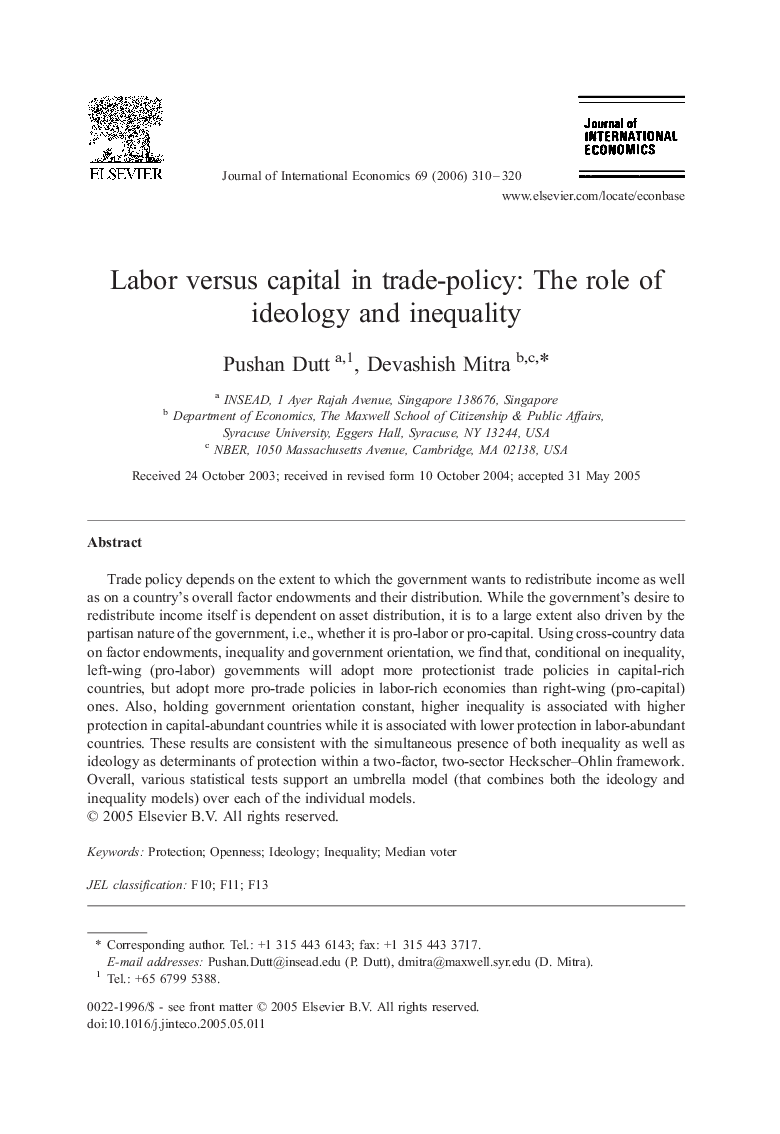| Article ID | Journal | Published Year | Pages | File Type |
|---|---|---|---|---|
| 963292 | Journal of International Economics | 2006 | 11 Pages |
Abstract
Trade policy depends on the extent to which the government wants to redistribute income as well as on a country's overall factor endowments and their distribution. While the government's desire to redistribute income itself is dependent on asset distribution, it is to a large extent also driven by the partisan nature of the government, i.e., whether it is pro-labor or pro-capital. Using cross-country data on factor endowments, inequality and government orientation, we find that, conditional on inequality, left-wing (pro-labor) governments will adopt more protectionist trade policies in capital-rich countries, but adopt more pro-trade policies in labor-rich economies than right-wing (pro-capital) ones. Also, holding government orientation constant, higher inequality is associated with higher protection in capital-abundant countries while it is associated with lower protection in labor-abundant countries. These results are consistent with the simultaneous presence of both inequality as well as ideology as determinants of protection within a two-factor, two-sector Heckscher-Ohlin framework. Overall, various statistical tests support an umbrella model (that combines both the ideology and inequality models) over each of the individual models.
Related Topics
Social Sciences and Humanities
Economics, Econometrics and Finance
Economics and Econometrics
Authors
Pushan Dutt, Devashish Mitra,
